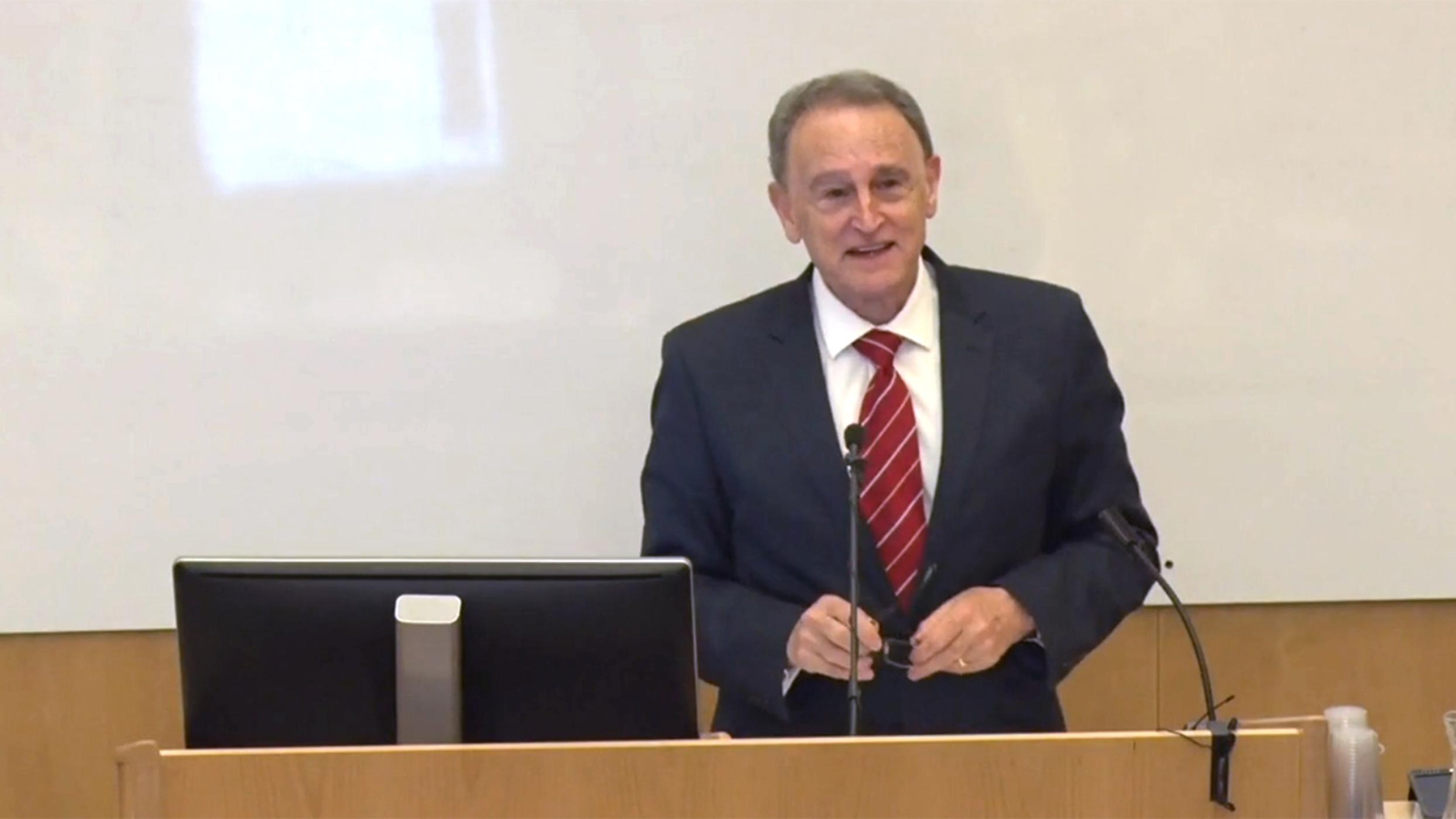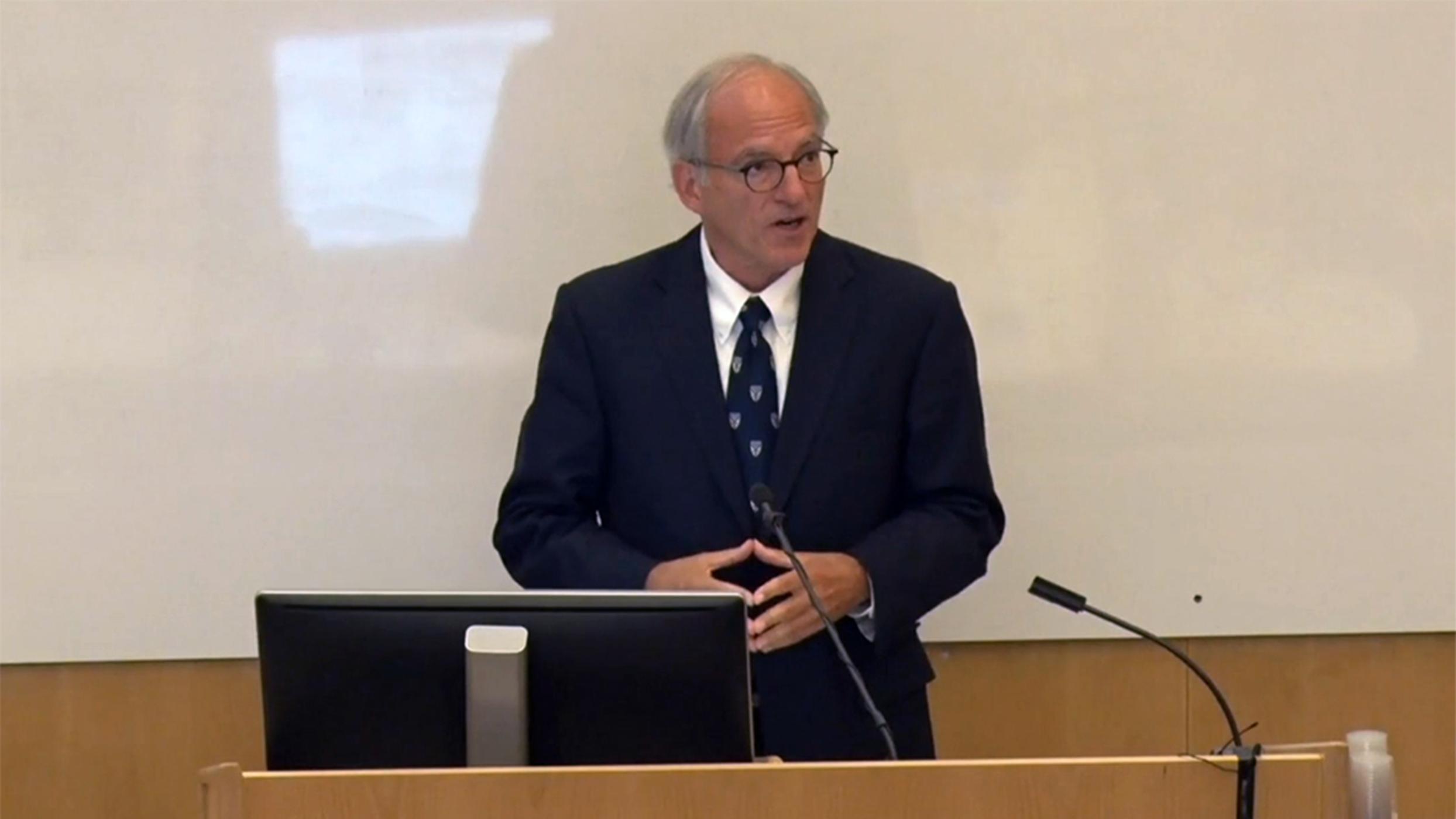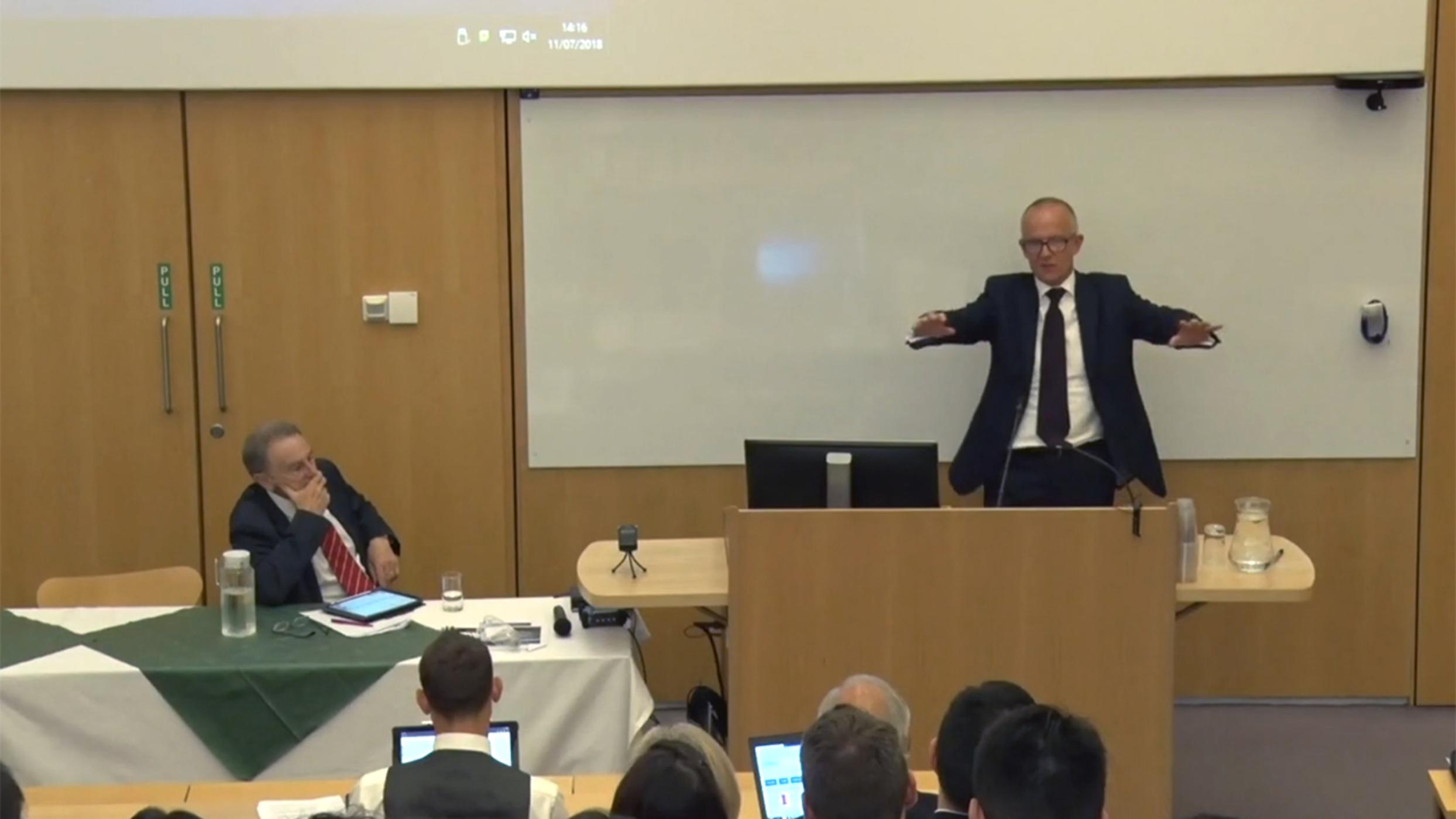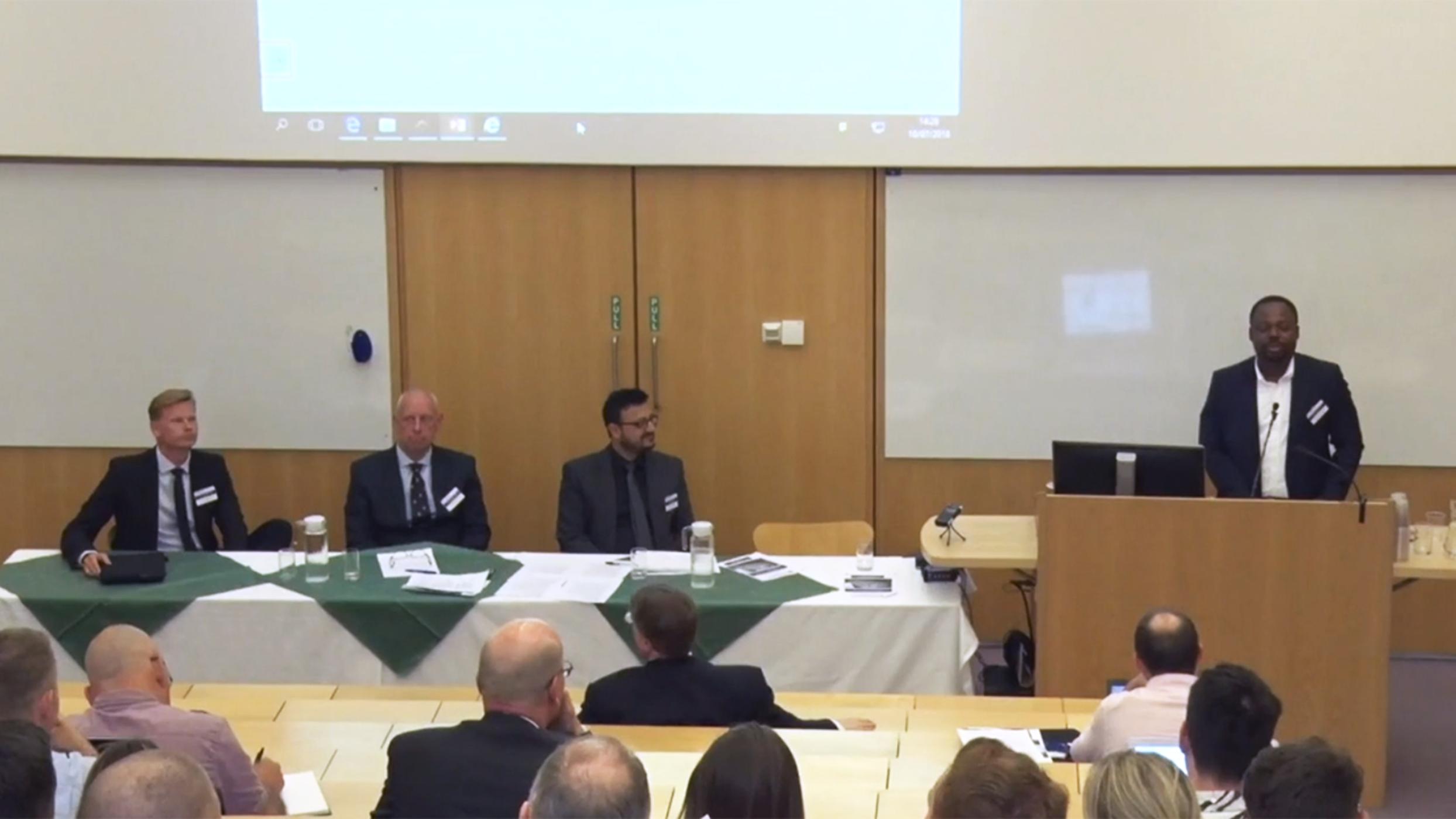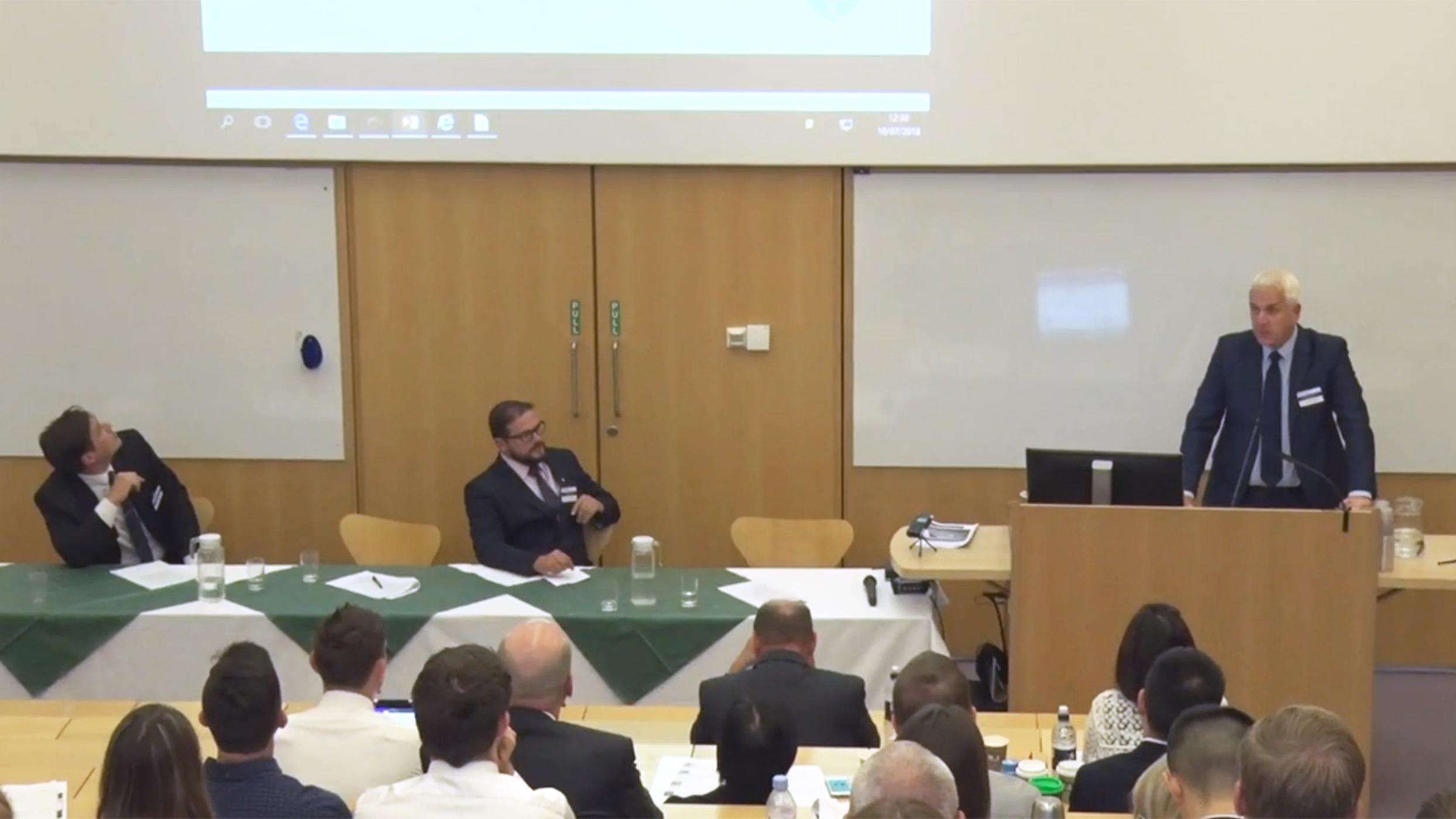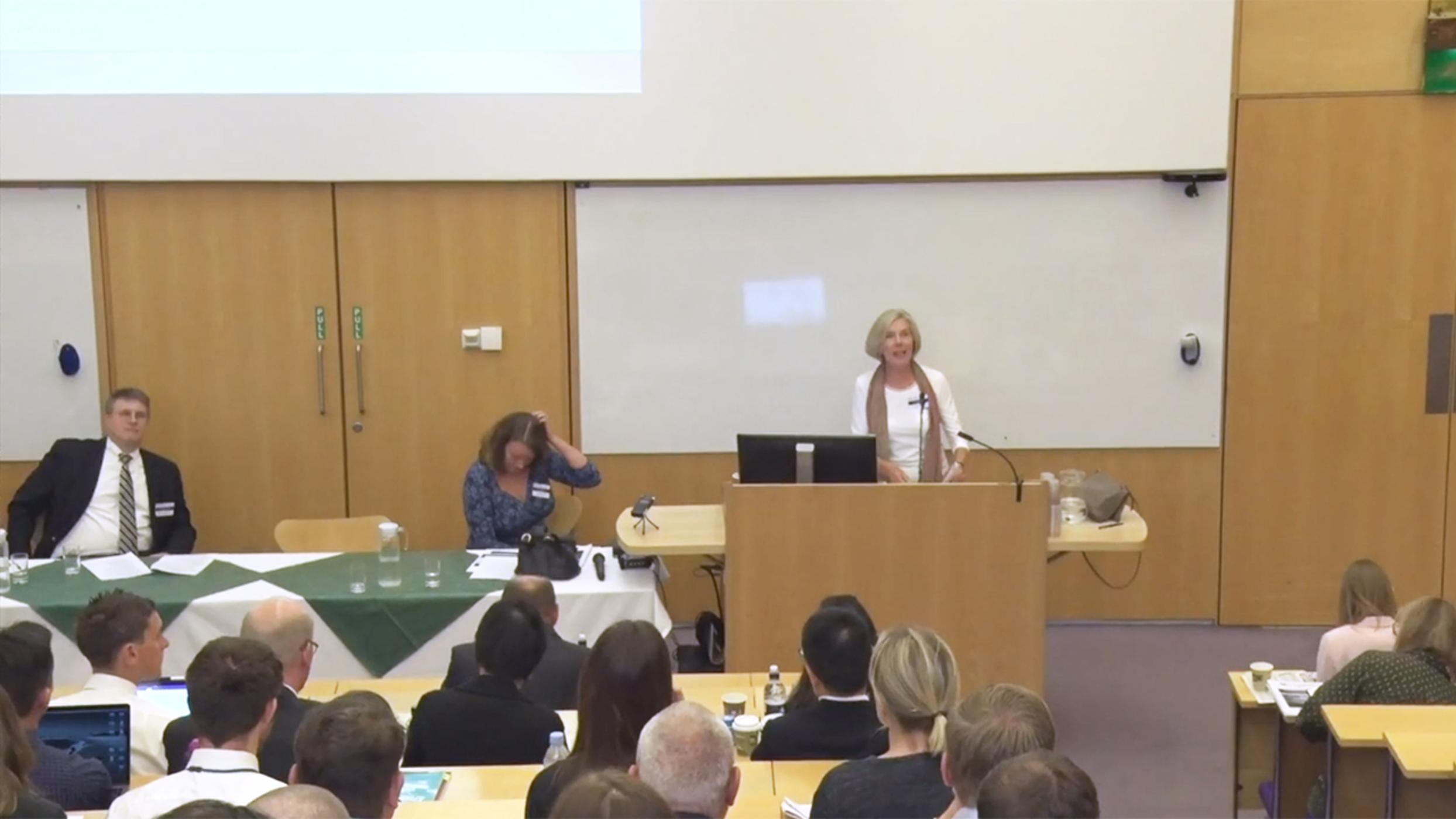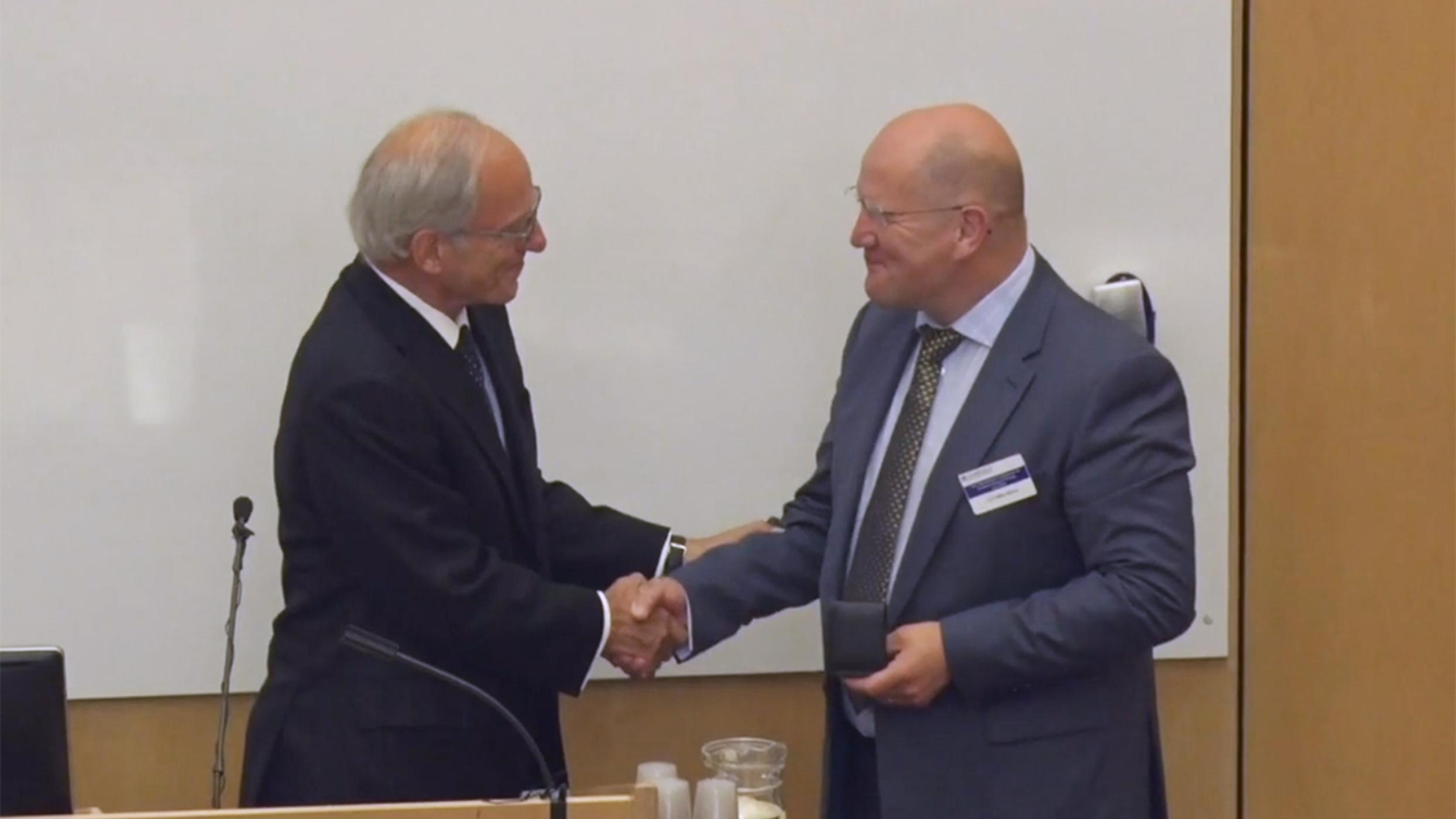'What Police Can Do With a Localized Crime Harm Index': Helle Andersen / Paul House / Simon Williams and Geoffrey Barnes
Update: 2018-07-27
Description
Helle Andersen, Danish Politik
Thesis title: How Measurement Matters – The Creation of a Danish Crime Harm Index and its Initial Application to National Police Data
Helle Aagaard Andersen is a “Crime analyst in the National Centre of Investigations, Danish Police. She started in the Danish Police in 2010 with the training of police recruits at the Police Academy. Helle Aagaard Andersen holds a prior degree in Political Science from Copenhagen University and now a Masters degree in Applied Criminology & Police Management from the University of Cambridge.
Paul House, Western Australia Police
Thesis title: Developing a Western Australian Crime Harm Index
Paul House is the Data Analytics and Assessment Manager within the WA Police Evidence-Based Policing Division (EBPD). He has worked in the unit since its inauguration in 2015 and manages a team of analysts, interns and graduates who conduct analysis for their evidence-based experiments. He recently completed the Master of Studies degree in Applied Criminology and Police Management.
Prior to working in EBPD, Paul worked for two years as a senior intelligence analyst. This involved an intelligence coordination role where he directed the analytical support for the Metropolitan Region and for the Serious and Organised Crime Division; drawing from his previous experience working in Canberra for the Department of Defence as an imagery and geospatial analyst.
Paul holds a Bachelor of Science degree from Edith Cowan University in Western Australia, majoring in Aviation, with minor studies in physics and chemistry. Prior to his career in intelligence, Paul worked in the aviation sector for eight years as a flying instructor in Perth and for a short period in China. He holds a grade one Flight Instructor rating and an Airline Transport Pilots Licence.
Simon Williams, Western Australia Police
Simon served with the West Midlands Police for 15 years, leading teams across local policing, operations roads policing and offender management. In June 2016 Simon took the opportunity to transfer to the Western Australian Police Force as a Senior Sergeant where he leads research within the Evidence Based Policing Division. In July 2016 he graduated with distinction from the Masters programme in Applied Criminology and Police Management at The University of Cambridge.
During his time with West Midlands Police Simon led change management and implementation within Operation Turning Point, the UK’s largest randomised control trial. This internationally significant policing experiment has seen Simon work alongside other forces in the UK and Australia where he has delivered master classes and advised on implementation of change programmes focused on evidence based policing.
During his last three years in the U.K, Simon led two key areas within the West Midlands. This included working alongside the University of Birmingham to reduce crime, anti-social behaviour and improve the legitimacy of the local police in the eyes of the student community. And latterly in the diverse and challenging area of Handsworth, Birmingham where he implemented a hot spot policing strategy across the metro area whilst conducting a randomised control trial testing the ‘Koper’ curve against a different way of delivering patrol dosage into hot spots of crime and anti-social behaviour.
Simon is currently leading field research in WA Police Force testing:
• The effectiveness of hot spot patrol strategies;
• The effect of procedurally just police engagement on community drug intelligence;
• The effect of advocacy on victims of sexual offences who report to the police;
• A comparison of police officer predictions of crime concentration, actual patrol locations and where crimes and crime harm occurred;
• The effectiveness of roadside breath testing in Western Australia and;
• The effects of GPS enabled devices on frontline police officers.
Dr Geoffrey Barnes, Western Australia Police
Dr Geoffrey Barnes is currently the Director of Criminology for the Western Australia Police, while also continuing to supervise students in the Police Executive Programme who are seeking their M.St. in Applied Criminology and Police Management at the University of Cambridge. He has both led and participated in multiple randomised controlled trials, and performs additional work on the actuarial forecasting of future criminal behaviour, the development of crime and anti-social behaviour over the life course, and the use of cost incentives to promote better outcomes for children in foster care. His research interests also include the use of restorative justice and cognitive behavioural therapy with criminal offenders, the effects of swift and certain sanctions on illegal behaviour, the connections between criminal justice involvement and mortality, and the employment of large data sets derived from official government systems.
He earned his Ph.D. in Criminology from the University of Maryland, and was elected a Fellow of the Academy of Experimental Criminology in 2011. Prior to joining the faculty at Cambridge, he had previous appointments at the University of Pennsylvania, University of Pittsburgh Medical Center, University of Maryland, and Australian National University.
Thesis title: How Measurement Matters – The Creation of a Danish Crime Harm Index and its Initial Application to National Police Data
Helle Aagaard Andersen is a “Crime analyst in the National Centre of Investigations, Danish Police. She started in the Danish Police in 2010 with the training of police recruits at the Police Academy. Helle Aagaard Andersen holds a prior degree in Political Science from Copenhagen University and now a Masters degree in Applied Criminology & Police Management from the University of Cambridge.
Paul House, Western Australia Police
Thesis title: Developing a Western Australian Crime Harm Index
Paul House is the Data Analytics and Assessment Manager within the WA Police Evidence-Based Policing Division (EBPD). He has worked in the unit since its inauguration in 2015 and manages a team of analysts, interns and graduates who conduct analysis for their evidence-based experiments. He recently completed the Master of Studies degree in Applied Criminology and Police Management.
Prior to working in EBPD, Paul worked for two years as a senior intelligence analyst. This involved an intelligence coordination role where he directed the analytical support for the Metropolitan Region and for the Serious and Organised Crime Division; drawing from his previous experience working in Canberra for the Department of Defence as an imagery and geospatial analyst.
Paul holds a Bachelor of Science degree from Edith Cowan University in Western Australia, majoring in Aviation, with minor studies in physics and chemistry. Prior to his career in intelligence, Paul worked in the aviation sector for eight years as a flying instructor in Perth and for a short period in China. He holds a grade one Flight Instructor rating and an Airline Transport Pilots Licence.
Simon Williams, Western Australia Police
Simon served with the West Midlands Police for 15 years, leading teams across local policing, operations roads policing and offender management. In June 2016 Simon took the opportunity to transfer to the Western Australian Police Force as a Senior Sergeant where he leads research within the Evidence Based Policing Division. In July 2016 he graduated with distinction from the Masters programme in Applied Criminology and Police Management at The University of Cambridge.
During his time with West Midlands Police Simon led change management and implementation within Operation Turning Point, the UK’s largest randomised control trial. This internationally significant policing experiment has seen Simon work alongside other forces in the UK and Australia where he has delivered master classes and advised on implementation of change programmes focused on evidence based policing.
During his last three years in the U.K, Simon led two key areas within the West Midlands. This included working alongside the University of Birmingham to reduce crime, anti-social behaviour and improve the legitimacy of the local police in the eyes of the student community. And latterly in the diverse and challenging area of Handsworth, Birmingham where he implemented a hot spot policing strategy across the metro area whilst conducting a randomised control trial testing the ‘Koper’ curve against a different way of delivering patrol dosage into hot spots of crime and anti-social behaviour.
Simon is currently leading field research in WA Police Force testing:
• The effectiveness of hot spot patrol strategies;
• The effect of procedurally just police engagement on community drug intelligence;
• The effect of advocacy on victims of sexual offences who report to the police;
• A comparison of police officer predictions of crime concentration, actual patrol locations and where crimes and crime harm occurred;
• The effectiveness of roadside breath testing in Western Australia and;
• The effects of GPS enabled devices on frontline police officers.
Dr Geoffrey Barnes, Western Australia Police
Dr Geoffrey Barnes is currently the Director of Criminology for the Western Australia Police, while also continuing to supervise students in the Police Executive Programme who are seeking their M.St. in Applied Criminology and Police Management at the University of Cambridge. He has both led and participated in multiple randomised controlled trials, and performs additional work on the actuarial forecasting of future criminal behaviour, the development of crime and anti-social behaviour over the life course, and the use of cost incentives to promote better outcomes for children in foster care. His research interests also include the use of restorative justice and cognitive behavioural therapy with criminal offenders, the effects of swift and certain sanctions on illegal behaviour, the connections between criminal justice involvement and mortality, and the employment of large data sets derived from official government systems.
He earned his Ph.D. in Criminology from the University of Maryland, and was elected a Fellow of the Academy of Experimental Criminology in 2011. Prior to joining the faculty at Cambridge, he had previous appointments at the University of Pennsylvania, University of Pittsburgh Medical Center, University of Maryland, and Australian National University.
Comments
In Channel


